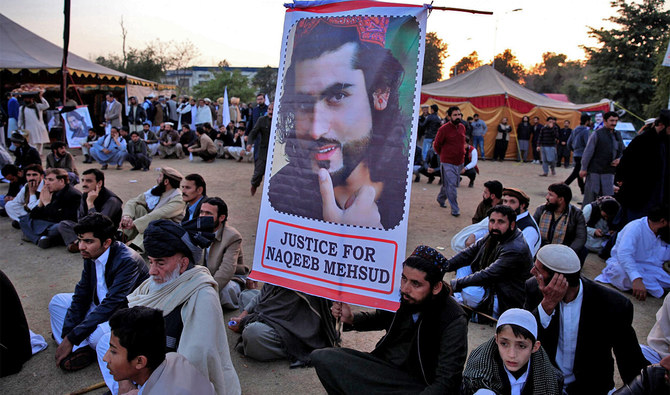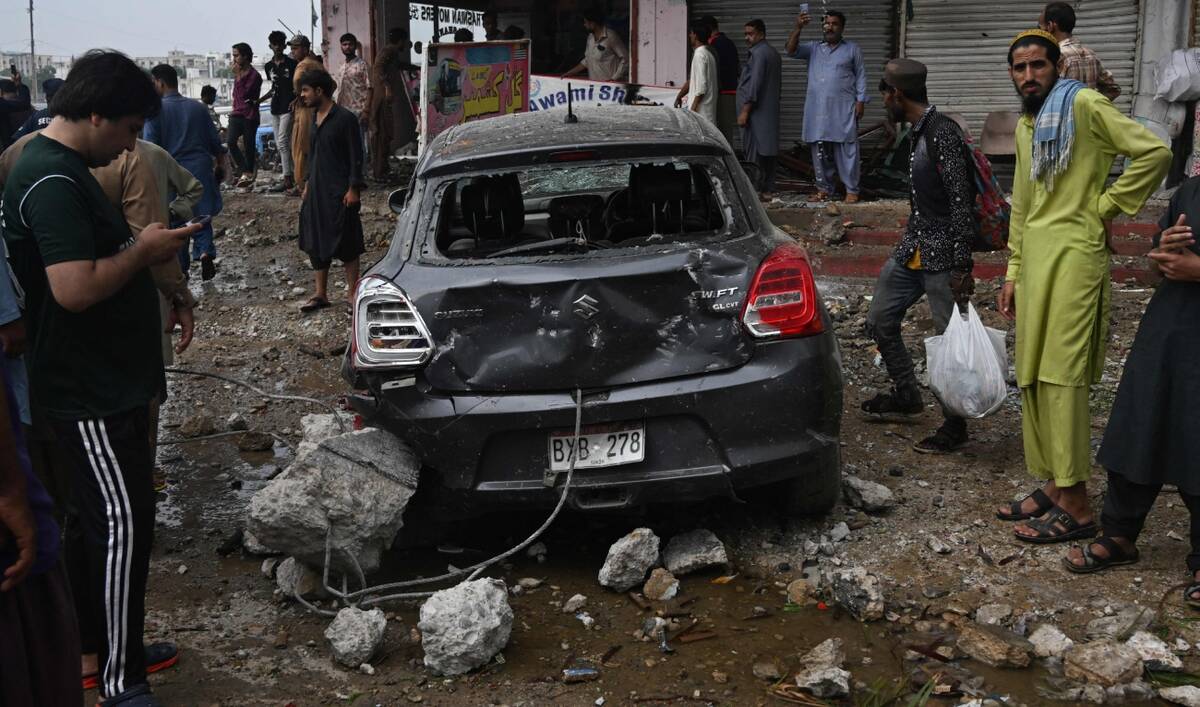KARACHI: An anti-terrorism court in Pakistan on Monday acquitted a senior police officer and his subordinates who were accused of the extrajudicial killing of a young Pashtun in 2018, saying the prosecution had failed to prove its case against them.
Naqeebullah Mehsud, an aspiring model from South Waziristan tribal district, was killed with four people in Karachi on January 13, 2018, by a police team led by then senior superintendent of police (SSP) Rao Anwar. The police at the time declared Mehsud a militant affiliated with the Pakistani Taliban and other proscribed outfits.
The killing prompted a protest movement led by young ethnic Pashtuns from the tribal areas in the country’s northwest who said they had long been the target of military operations, internal displacement, ethnic stereotyping and abductions by security forces. The protests transformed the Mehsud Tahaffuz Movement, formed in 2014, into a larger socio-ethnic movement, the Pashtun Tahafuz Movement (PTM), which continues to operate to date and campaigns for Pashtun rights.
“God has given me success,” Anwar, the primary suspect in the case, told the media in a brief statement after the verdict while accusing former chief justice Saqib Nisar and Sindh police of involving him in a “fabricated case.”
The anti-terrorism court in Karachi framed charges against him and his subordinates in March 2019 for the murder of Mehsud and implicating him in bogus cases. The case remained under trial for around five years and witnessed a number of twists and turns until the court finally reserved its verdict on January 14 which it announced Monday afternoon.
The victim’s family did a news conference on Sunday, vowing to continue its struggle for justice.
“Today’s judgment will be appealed before the Honorable High Court by the legal heirs of Naqeeb Mehsud,” Jibran Nasir, a rights activist and lawyer representing the Mehsud family, said in a Twitter post.
He described the verdict as “travesty of justice,” saying he was not surprised since every institution of the country was “rotting away like a dead body.”
Nasir told journalists on Sunday he had disclosed two years ago that five important witnesses had withdrawn their testimonies in the case.
“They started contradicting each other and the prosecution, the state, deliberately weakened the case,” he continued. “I had foresaid it two years ago that the state had made arrangements to acquit Rao Anwar.”
He also maintained in the news conference that the court judgment would have far-reaching impact on the justice system of Pakistan.
“His [likely] acquittal is not an acquittal in this case alone, but also [in cases of] 444 [people killed in] other fake encounters he has carried out,” Nasir said.
“We have been fighting and will fight for justice,” he added.






















